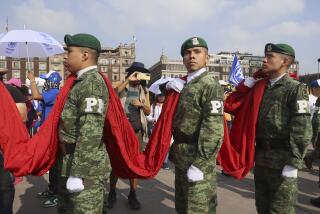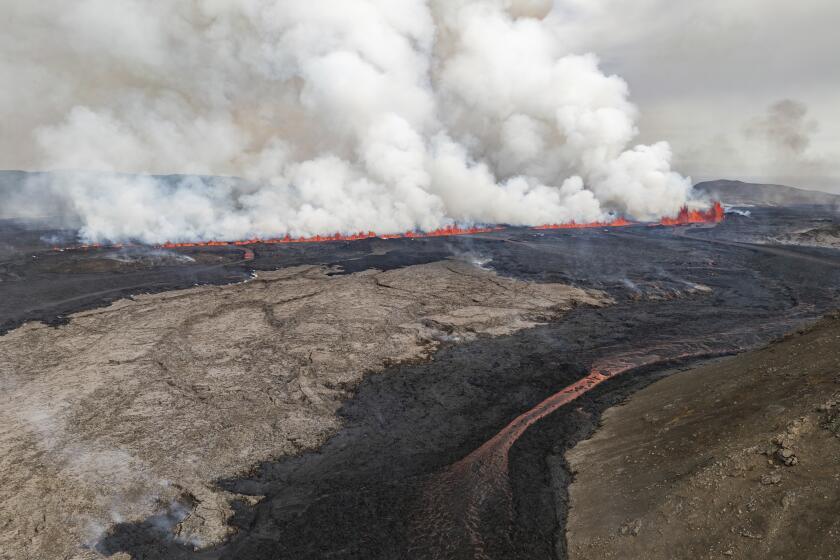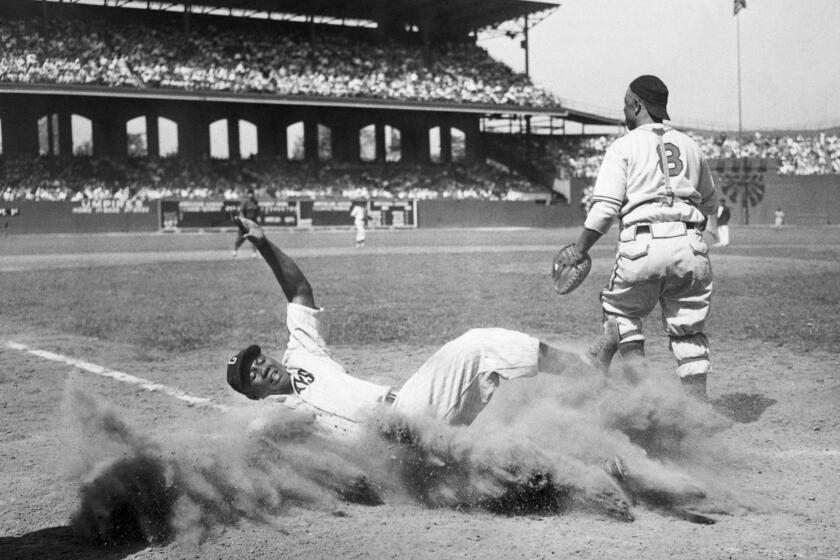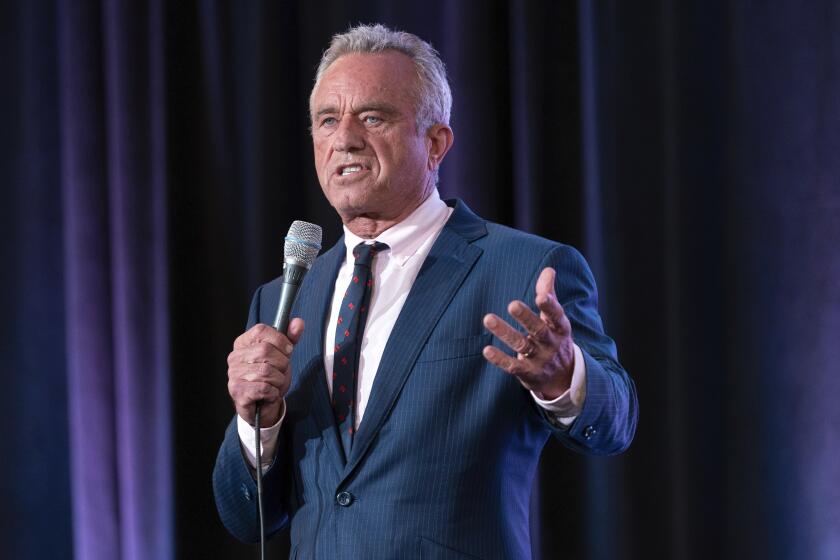Bosnian Foes Agree to Cease-Fire : Warfare: The pact, the latest among many, takes effect today and establishes two demilitarized areas.
The Bosnian government and rebel Serbs, in marathon negotiations broken up once by a mortar attack and several times by shouting matches, agreed Saturday to a nationwide cease-fire and the establishment of a new demilitarized zone in two besieged Muslim towns in eastern Bosnia.
U.N. officials said the talks, held in a room filled with sandbags at Sarajevo airport, may have broken a deadlock between the warring parties and given some hope for carrying out a U.N. Security Council mandate to set up protected zones for the beleaguered Muslim population of Bosnia.
The cease-fire, which came after almost 26 straight hours of negotiations and takes effect today, pulled Bosnia back from the brink of “catastrophe,” said Lt. Gen. Philippe Morillon, commander of U.N. forces in Bosnia.
“It’s too early to decide if it’s a historic day today,” said the visibly pleased French general. “It’s not the first agreement that we have had, but . . . it’s certainly major progress.”
Many truces have been made and broken in the year-old Bosnian conflict, but the Bosnian Serbs signed this one under intense pressure to stop the war.
On Thursday, their chief patron, Serbian President Slobodan Milosevic, said he would cut off military aid to the rebels, and the United States has been stepping up efforts to get European support for air strikes against the Bosnian Serbs.
The Bosnian Serbs’ military commander, Gen. Ratko Mladic, signed the agreement, along with the commander of Bosnian government forces, Gen. Sefer Halilovic. Morillon signed as a witness.
The agreement said it was “aimed at a cessation of armed attacks or any hostile acts within the whole territories of Bosnia-Herzegovina.”
It provides for demilitarization of the eastern town of Srebrenica by 5 p.m. Monday and of Zepa by 5 p.m. Wednesday. All forces would be required to withdraw or surrender their weapons to U.N. troops.
Sarajevo radio said Saturday that Serbian attacks on Zepa, about 30 miles east of Sarajevo, were continuing and that the town’s defenders were making a “superhuman effort” to resist.
Early Saturday, Mladic had signed an agreement allowing U.N. troops into Zepa, where hundreds of civilians were reported killed or wounded in several days of fighting, and into Gorazde, another Muslim enclave in eastern Bosnia.
Bosnian President Alija Izetbegovic initially refused to go along with the plan, which called for Zepa’s defenders to be disarmed in return for Serbian withdrawal. He said that was tantamount to surrender.
The Bosnian refusal sent the U.N. general back to the airport for more talks with the warring commanders. The reason for the Bosnian government’s change of heart was not clear.
Zepa, Gorazde and Srebrenica were among six mainly Muslim towns declared “safe areas” by the U.N. Security Council on Thursday--an action taken after Bosnian Serbs again rejected a U.N.-backed peace plan.
More to Read
Start your day right
Sign up for Essential California for news, features and recommendations from the L.A. Times and beyond in your inbox six days a week.
You may occasionally receive promotional content from the Los Angeles Times.






